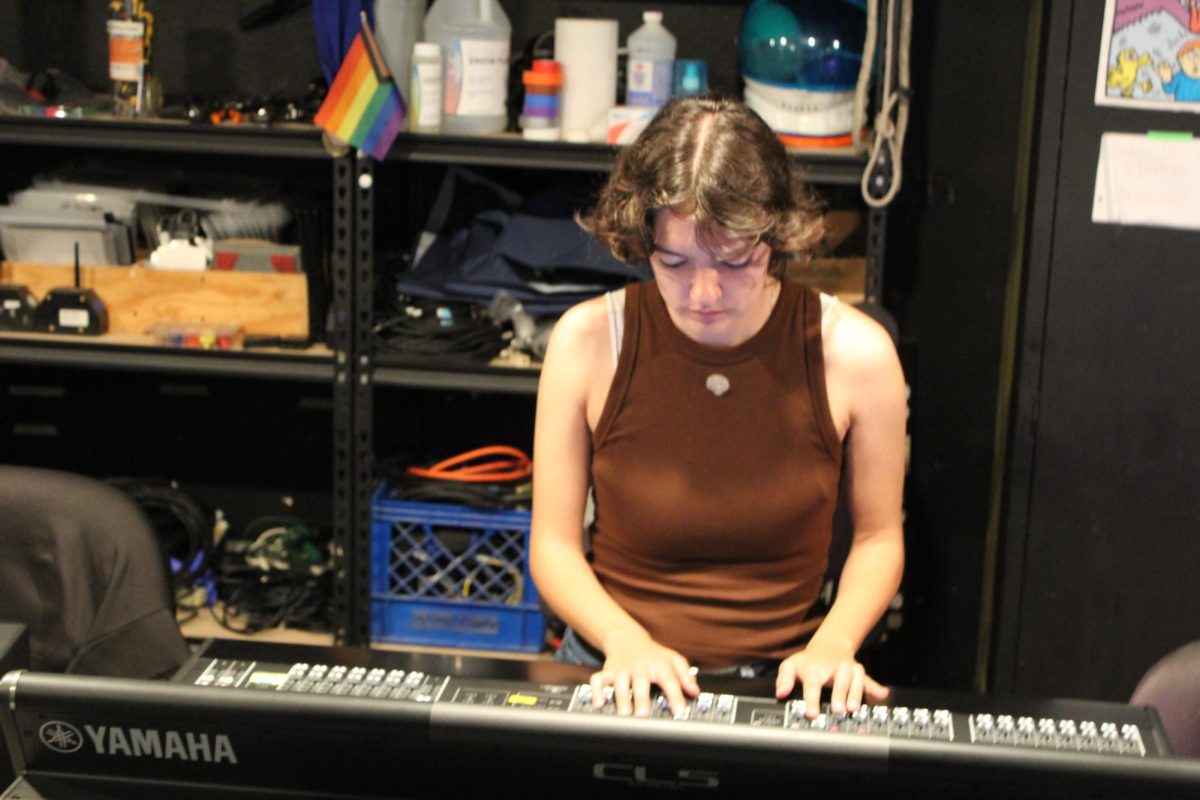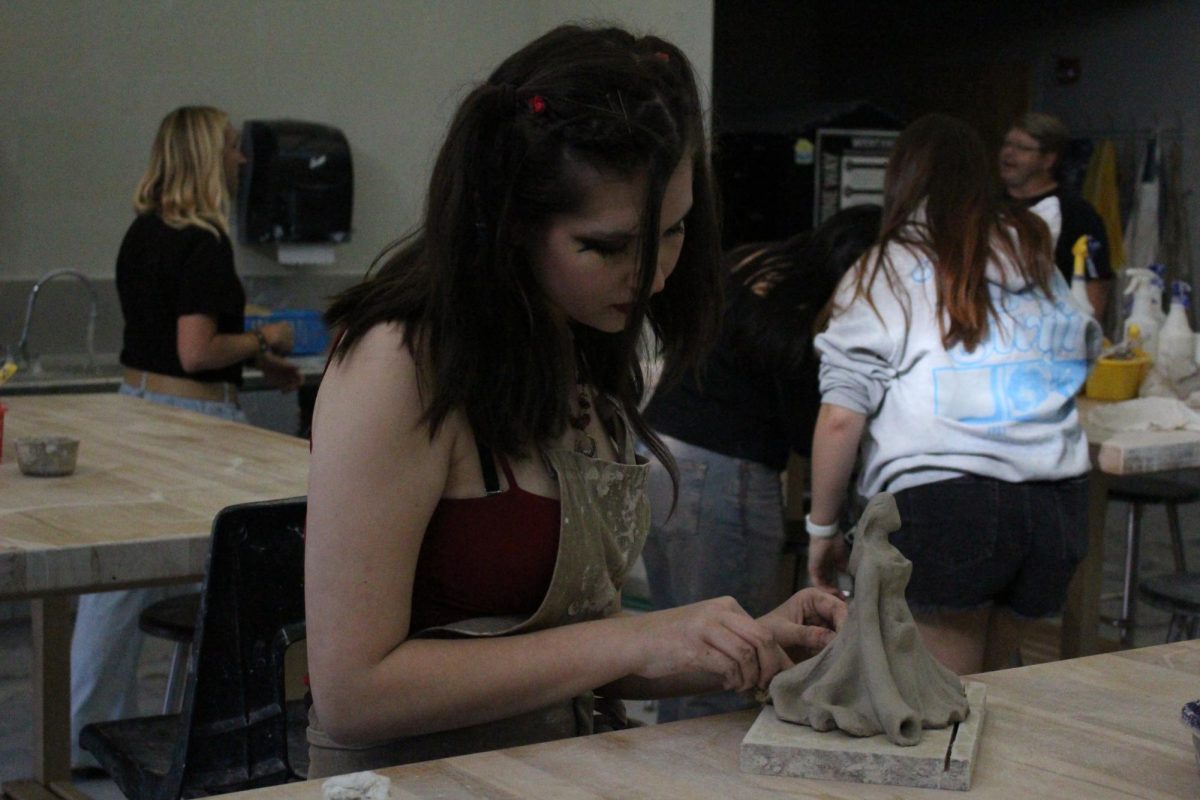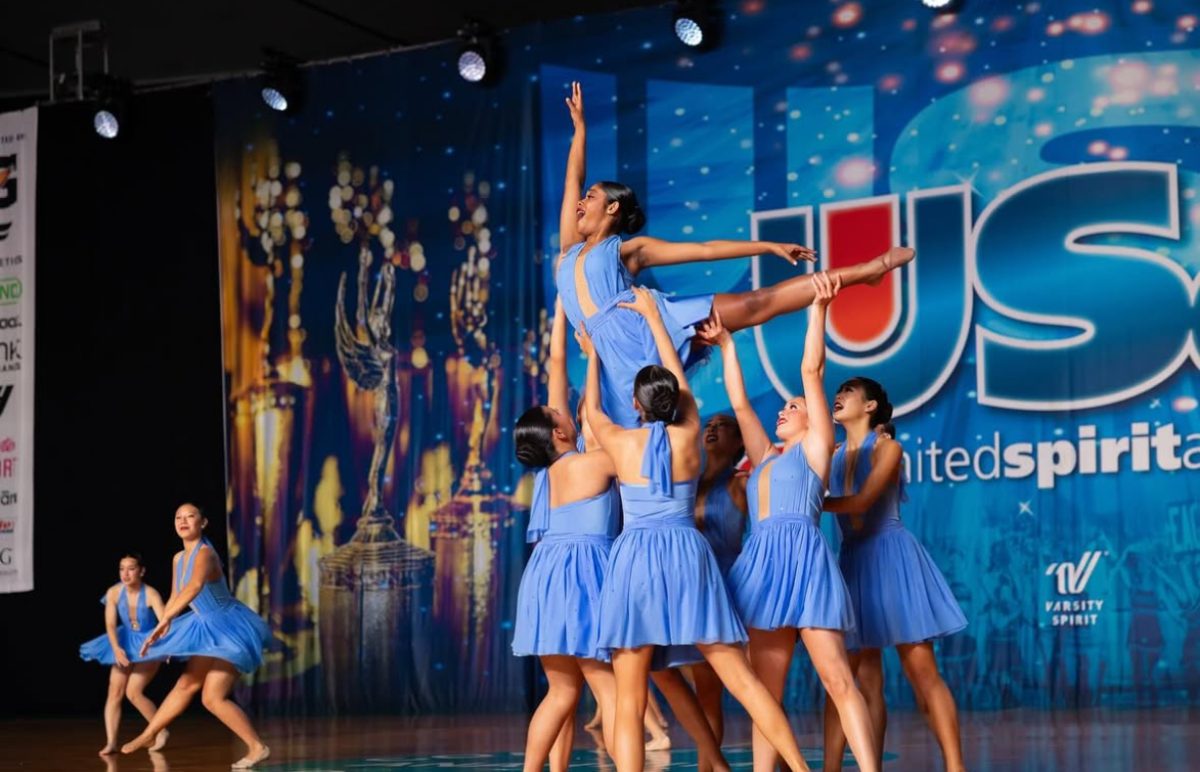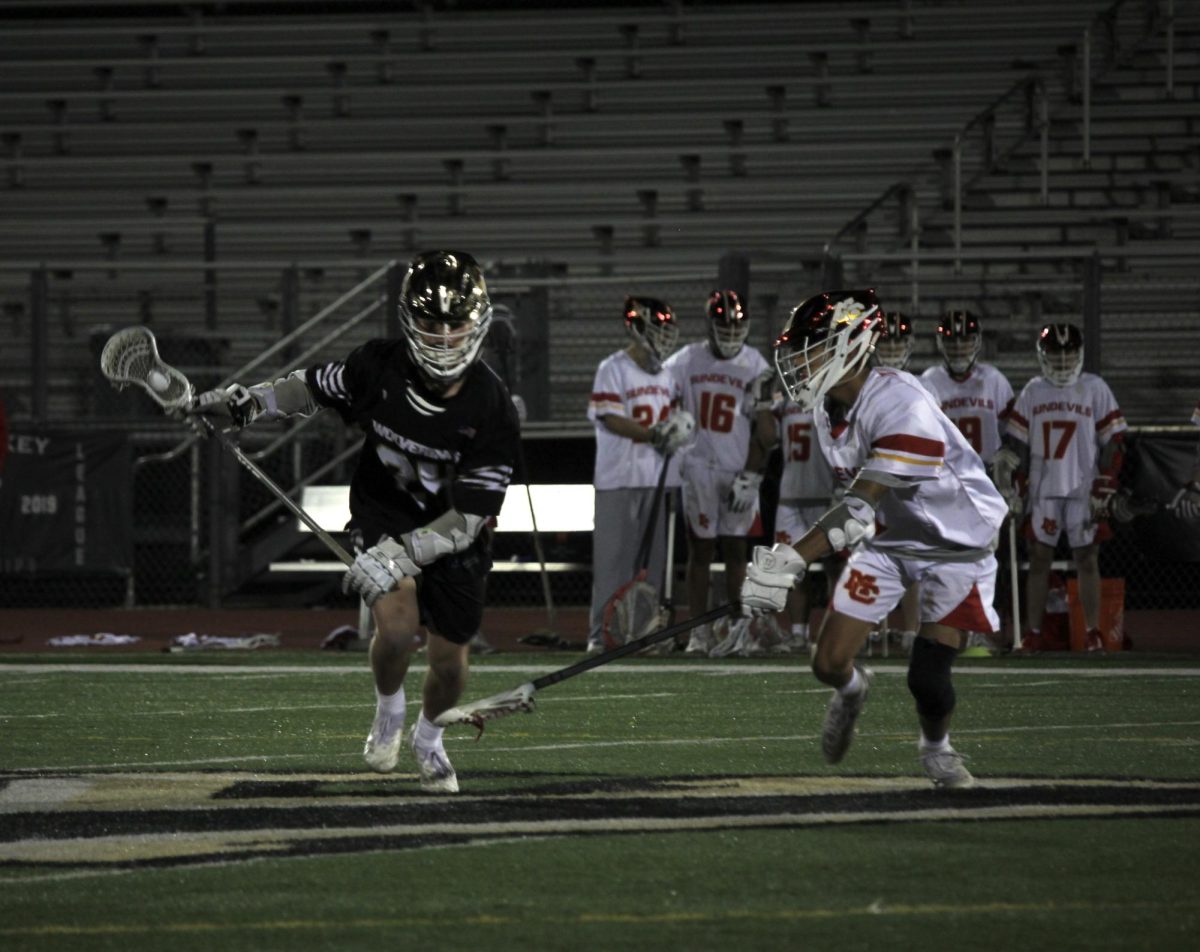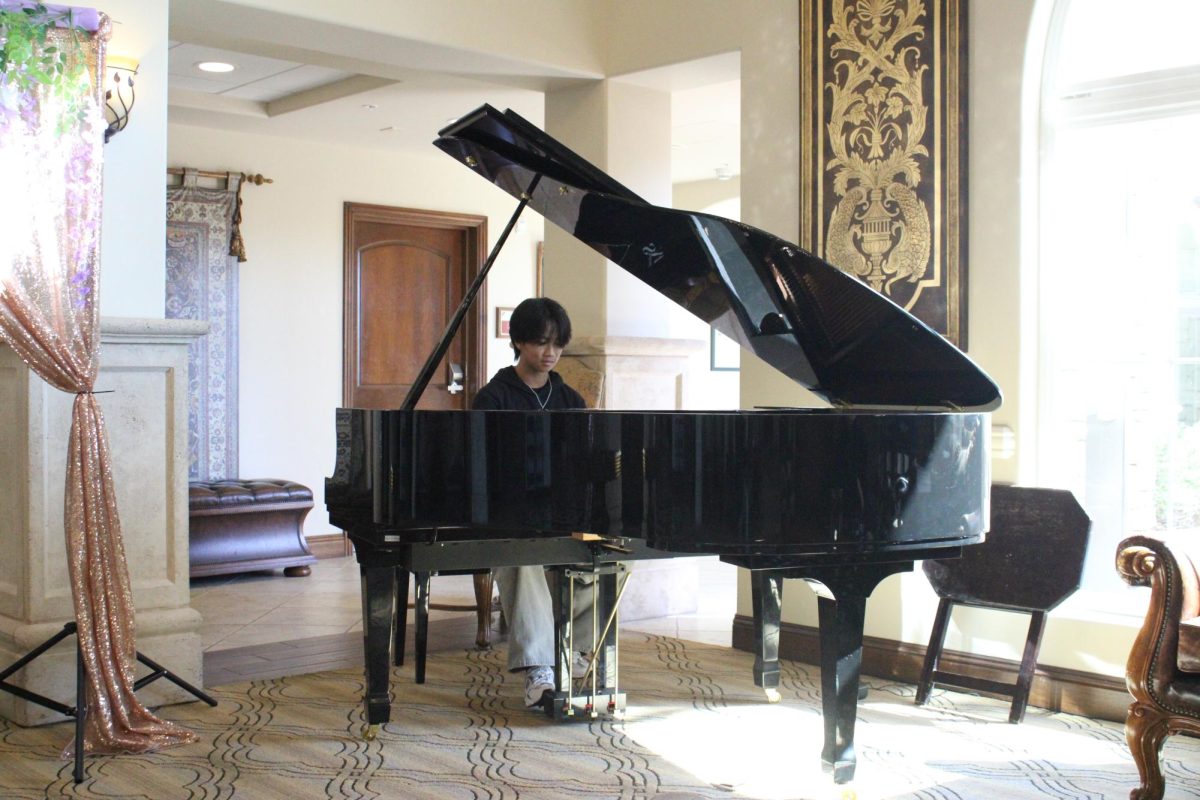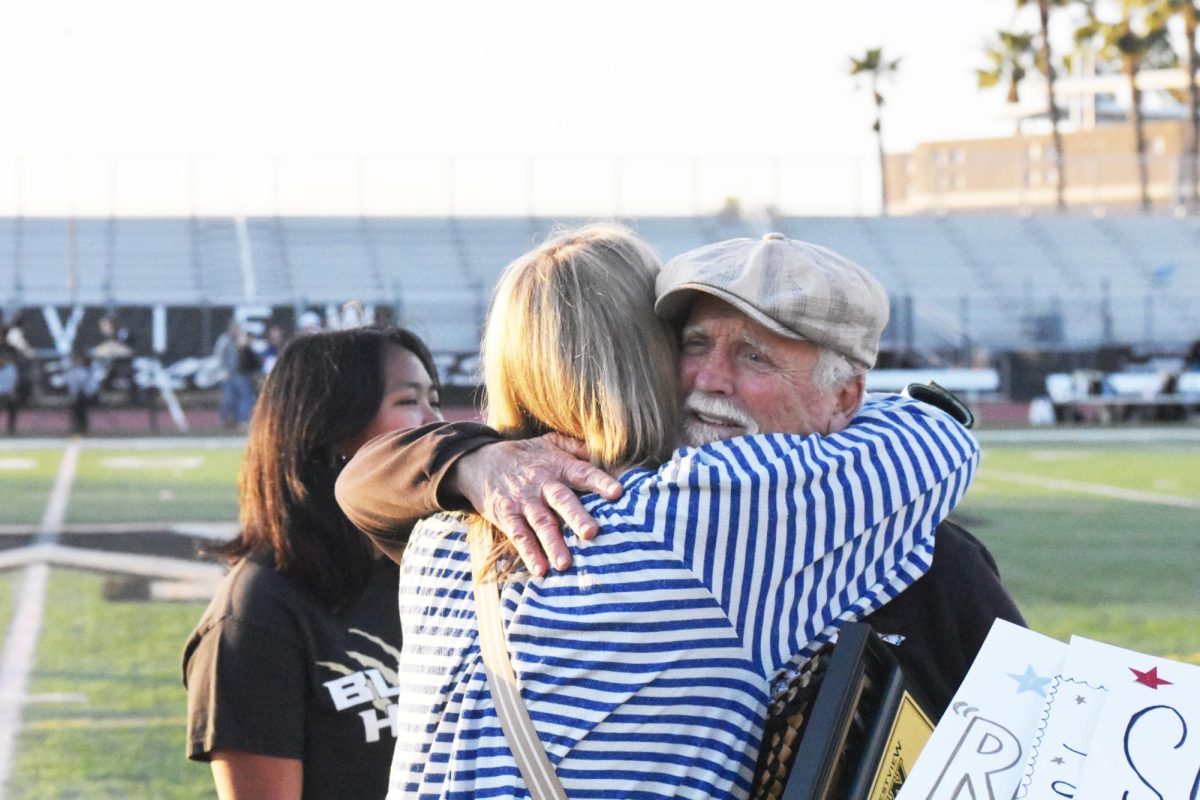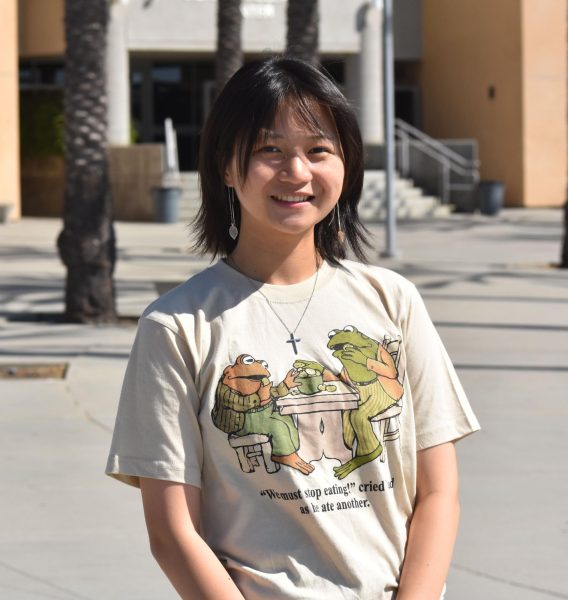 When Assistant Principal Craig Bowden walks out of his office every day, he places a heavy-duty biking jacket over his wrinkle-free button-down shirt, puts his neon decal helmet on his head, and hops on his Hyper Naked Yamaha motorcycle, zooming home and enjoying the thrill of the moment.
When Assistant Principal Craig Bowden walks out of his office every day, he places a heavy-duty biking jacket over his wrinkle-free button-down shirt, puts his neon decal helmet on his head, and hops on his Hyper Naked Yamaha motorcycle, zooming home and enjoying the thrill of the moment.
“[It’s] truly like a break from all the stress and anxiety because you are in that moment and not thinking about anything else,” Bowden said. “It’s calming.”
Bowden started riding motorcycles in 2014 after moving to California to pursue a career in education.
“When I moved to Southern California about 10 years ago, I understood Southern California to be the place of motorcycles [and] tattoos,” Bowden said. “[Motorcycling] is something I’ve always been interested in trying and it’s the place to do it because the weather’s nice and you can ride year-round.”
According to Bowden, riding his motorcycle also fulfills his love for adventure, hence why he rides it to and from work nearly every day.
Fourteen years ago, however, instead of racing through the streets of San Diego, Bowden spent his days skiing down the crisp, snowy mountains of the East Coast and coaching Olympic Alpine Ski Racers.
Bowden first started coaching ski racing in the summer of 1997 at a ski camp in Mount Hood, Oregon during his junior year in college.
“There was also an opportunity to get a certification out in Mount Hood,” Bowden said. “So, I got my level 100 – your lowest level of coaching – in that summer and was able to start coaching there.”
Although Bowden was majoring in economics, he enjoyed coaching so much that he kept coaching ski racing throughout college. However, after graduating, this left Bowden with a tough decision: should he pursue a career in economics, or do what he loves and continue to coach?
“I made $8,000 my first year of coaching,” Bowden said. “At that point, [coaching] really had to be a passion and an interest [for me to pursue it] because financially, it wasn’t justifiable. But, one of the greatest gifts my parents gave me was they were able to pay for me to attend college, and that enabled me the freedom to pursue something where I wasn’t making a lot of money. [It] was quite a privilege to have a supportive family saying, ‘You wanna take this risk? Go for it and enjoy it. We support you.’ That was a big moment [for me] to say, ‘I wanna pursue this.’”
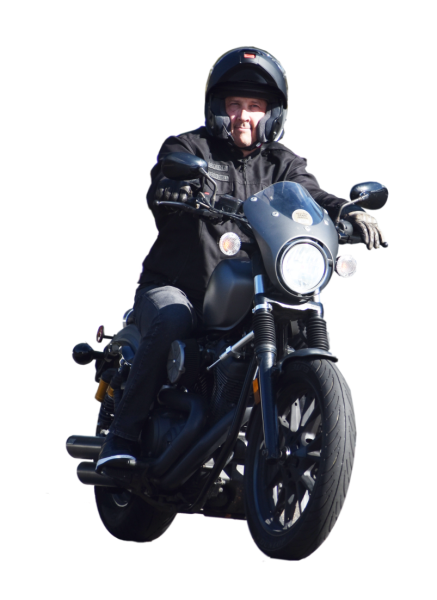
From then on, during the off-season, Bowden worked for a landscaping company in New Hampshire and Vermont. Then, during the summer, he would travel down to Oregon to coach at a small ski camp. Although Bowden wasn’t making much money, he was doing what he loved. Five years later, however, his leap of faith finally paid off.
“The head coach of the program I was at took a position at a college at the time, so I was fortunate to be able to take over the program,” Bowden said. “I was able to, and fortunate to have some great athletes and fortunate to be there at the time of their growth and development, and that way I got recognized. When I started getting calls nationally to interview for positions, I realized this isn’t just a wintertime gig, this is now a year-round gig.”
With the hard-earned success of his coaching career, Bowden was selected to coach in the 2006 Winter Olympics in Turin, Italy.
“That was a real special opportunity,” Bowden said. “You always wanna go to the Olympics as an athlete, but to be able to have the opportunity to go as a coach too is quite the honor and the privilege. It validated my hopes and desires for [coaching] to be a full-time job.”
However, all of this changed once he met a certain athlete.
“I had been working at some of the best ski academies in the country and loved it,” Bowden said. “Then I had an opportunity to work with an athlete who had autism and it was just totally new to me. Working with that athlete was rewarding, more rewarding than it was to work with an athlete going to the Olympics.”
After hearing about how much this experience meant to him, one of Bowden’s friends suggested that he start working with more special needs students.
“I’d be sharing stories of [that student] throughout the day and she just saw how much I enjoyed it,” Bowden said. “My friend at the time worked at a residential treatment center for boys with autism that are in high school and she kept saying, ‘Come check it out.’”
Then, in 2013, Bowden decided to take another leap of faith and join his friend’s program in Colorado to begin a new career in special education. However, with no experience nor any teaching credentials in that area, Bowden found himself struggling.
“When a teaching position opened, they asked me if I was interested in filling it,” Bowden said. “Not having any traditional teaching experience, I was dumb enough to be like ‘Yeah, of course. Why not?’ I’ll tell you what. If you’re teaching a group of boys with autism and you don’t have your stuff together, things can go sideways in the classroom pretty quickly. There were a lot of late nights trying to develop lesson plans and think of ways to engage the students.”
After working there for a year, Bowden moved to California to get his special education credentials while working at High Tech High School as a special education teacher.
“I just found a lot of purpose and value coming into education that I had been losing in the athletic realm,” Bowden said. “There are so many similarities, [as] coaching is very similar to teaching; you’re motivating, you’re engaging, you’re keeping things exciting, and so, I loved it.”
Eventually, in 2021, Bowden was hired at Westview and has been here since.
“Working with students is truly the number one thing that I value the most,” Bowden said. “Whether I’m greeting people at the door in the morning or if I’m working with or seeing students out during lunch, visiting classrooms. Even in disciplinary things, because there, you really get to be there for the student and help them work through things going on in their life. To help people grow and learn from whatever mistakes they may have gotten into, I value that.”



